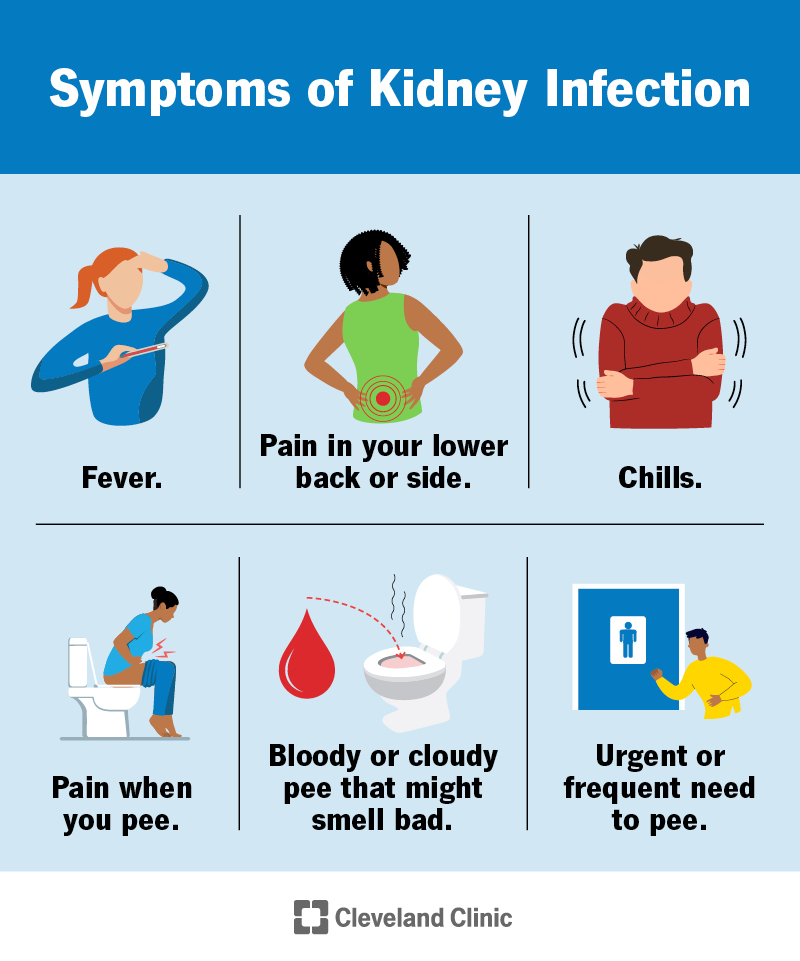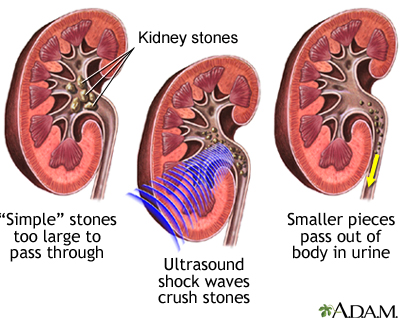Discovering the Effects and Causes of Kidney Stones in Contrast to Urinary System Infections: A Comprehensive Overview
The expedition of kidney rocks and urinary system infections (UTIs) exposes an intricate interaction of signs and symptoms and underlying causes that necessitate cautious examination. What are the essential differences in their signs, and exactly how might these inform treatment methods?
Review of Kidney Stones
Kidney rocks, also referred to as renal calculi, kind when certain compounds in the pee crystallize and aggregate, resulting in the development of hard down payments within the kidneys. These rocks can vary in dimension, ranging from a grain of sand to a golf round, and can be made up of various products, one of the most usual being calcium oxalate, uric acid, struvite, and cystine. The development of kidney stones is influenced by several factors, including dietary practices, fluid intake, and genetic predisposition.
Signs and symptoms of kidney rocks may include extreme discomfort in the back or side, blood in the urine, nausea or vomiting, and frequent peeing, especially as the rock relocates via the urinary system system. Diagnosis usually includes imaging researches such as ultrasound or CT scans, together with urinalysis to recognize the rock's composition.
Therapy alternatives differ based on the size and kind of stone, as well as the extent of signs and symptoms (Kidney Stones vs UTI). Little stones might pass naturally with raised liquid consumption, while larger rocks may call for medical treatments such as lithotripsy or medical removal. Comprehending the pathophysiology and risk aspects related to kidney stones is crucial for effective avoidance and administration
Summary of Urinary System Infections
Urinary system infections (UTIs) prevail bacterial infections that affect any component of the urinary system, consisting of the kidneys, ureters, bladder, and urethra. They primarily happen when microorganisms, commonly from the intestinal system, go into the urinary system, bring about swelling and infection. UTIs are categorized into 2 primary types: straightforward and complicated. Uncomplicated UTIs normally occur in healthy individuals with regular urinary systems, while challenging UTIs might occur in people with hidden problems, such as architectural irregularities or jeopardized immune systems.
The prevalence of UTIs is notably higher in females than men, primarily because of anatomical distinctions, such as a shorter urethra. Risk elements include sexual task, certain contraceptive methods, urinary retention, and dehydration. The diagnosis of UTIs is typically verified with urine tests, which might reveal the visibility of microorganisms, leukocyte, or red blood cells.

Symptoms of Kidney Stones
The discomfort connected with kidney stones can manifest in different methods, commonly leading people to seek clinical interest. Among the most common signs is extreme discomfort, normally local in the reduced back or side, which may radiate to the abdominal area or groin. This discomfort, commonly called sharp or cramping, can happen all of a sudden and might vary in intensity.
Furthermore, people may experience hematuria, or blood in the pee, which can range from microscopic total up to visible staining. This sign may be come with by modifications in urinary system routines, such as increased regularity or urgency, along with discomfort during urination. Nausea or vomiting and vomiting are additionally common, often arising from the body's reaction to extreme pain.
In many cases, individuals may experience fever and cools, especially if an additional infection establishes because of the blockage triggered by the stones. Generally, the mix of extreme discomfort, hematuria, modified urinary system patterns, and intestinal symptoms can provide substantial insight right into the existence of kidney rocks, warranting punctual clinical examination and treatment. Understanding these symptoms is important for prompt medical diagnosis and reliable monitoring of the problem.
Signs And Symptoms of Urinary System Tract Infections
Infections within the urinary tract often provide an array of distinct signs that can dramatically impact daily life. The most common symptoms consist of a consistent desire to urinate, commonly come with by imp source a burning experience throughout urination, called dysuria. People might additionally experience raised regularity of peeing, creating percentages of pee each time.
Various other significant signs and symptoms consist of over cast or reeky pee, which may suggest the existence of bacteria or pus. In many cases, urine might show up red or pink because of the existence of blood, a problem recognized as hematuria. Furthermore, individuals might experience pelvic pain or see stress, which can better intensify the sensation of urgency.
Systemic signs may additionally show up, such as high temperature, chills, and exhaustion, particularly if the infection has risen to the kidneys. It is necessary to recognize these symptoms early, as unattended urinary system system infections can bring about a lot more severe problems. Kidney Stones vs UTI. Motivate clinical attention is advised when these signs are observed, enabling ideal analysis examination and therapy to minimize pain and protect against further health problems
Root Causes Of Each Condition
Frequently, kidney stones and urinary tract infections emerge from distinct yet in some cases overlapping reasons that can influence individuals differently. Kidney rocks typically create because of metabolic factors, dietary selections, and genetic proneness. Boosted degrees of calcium, oxalate, or uric acid in the pee can result visit this website in rock formation. Dehydration, insufficient liquid intake, and high-sodium diets can intensify these problems, advertising formation within the urinary tract.

Understanding these distinct causes is essential for avoidance and therapy. Kidney Stones vs UTI. While way of life alterations may alleviate the danger of kidney rocks, ideal hygiene and prompt therapy of urinary system tract infections are crucial for decreasing their reoccurrence and linked problems
Conclusion
In recap, kidney rocks and urinary system tract infections existing distinct signs and underlying reasons. Kidney rocks are characterized by severe discomfort and metabolic variables, while urinary system infections primarily involve bacterial infections leading to urinary system necessity and discomfort. Both problems can result in hematuria, their development mechanisms differ dramatically. Understanding these differences is critical for efficient medical diagnosis and therapy, inevitably improving individual outcomes for those affected by either problem.
The exploration of kidney stones and urinary system infections (UTIs) reveals a complex interaction of signs and underlying causes that warrant mindful assessment.Urinary system infections (UTIs) are typical microbial infections that impact any part of the urinary system, consisting of the kidneys, ureters, bladder, and urethra.Regularly, kidney stones and urinary system system infections develop from distinctive yet often overlapping causes that can affect people in different ways.In recap, kidney stones and urinary system system infections existing distinct signs and symptoms and underlying reasons. Kidney stones are characterized by serious discomfort and metabolic elements, while urinary tract infections mostly involve bacterial infections leading to urinary system urgency and pain.
Comments on “Comprehensive Guide to Kidney Stones vs UTI: Diagnosis, Triggers, and Alleviation”